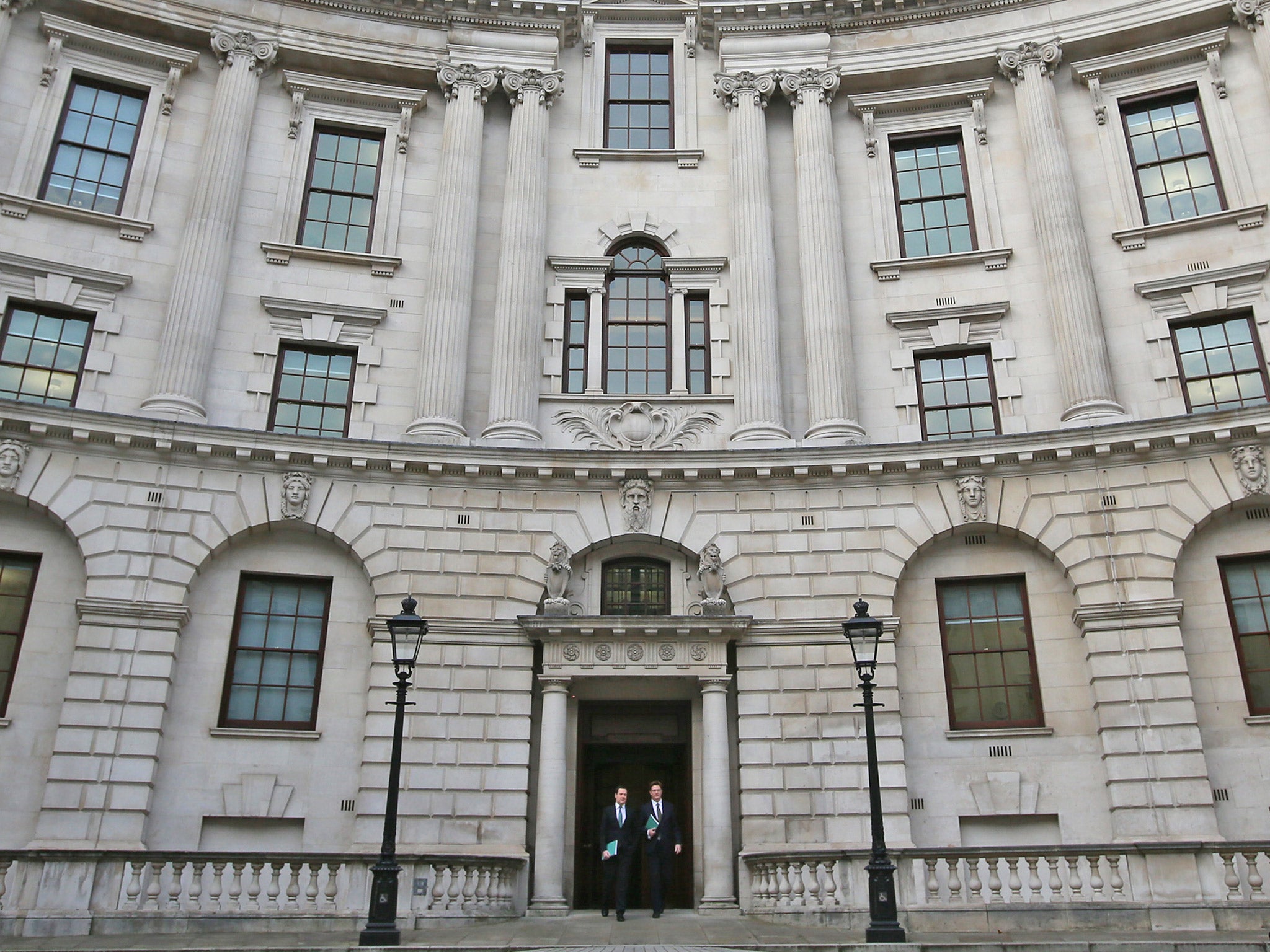For some time now Treasury ministers have been asserting that the UK entered the Great Recession running one of the (if not the) largest structural deficit in the developed world. See here, here and here for some examples.
It's essentially a political point, designed to suggest Labour was unusually profligate by international standards and that the Coalition's contentious front-loaded fiscal consolidation was therefore economically unavoidable.
The claim is based on cross-country fiscal comparisons from the OECD and the IMF.
Here's the OECD's latest estimate of the structural deficits of its members in 2007:
It clearly shows the UK overspending by considerably more than the rest of the G7 and only being outdone by Greece and Hungary in the industrialised world.
Now one obvious retort to this point is to say that if public spending was so out of control why did George Osborne and David Cameron say in 2007 that they would match Labour's spending plans? If Labour's judgement was poor, so, surely, was the Tories'.
But there might be another retort, which is that the Treasury's own watchdog/forecaster doesn't necessarily agree that the UK's public finances were the worst in the rich world going into the crisis - or at least that it doesn't have a view on the subject.
The Office for Budget Responsibility has today published a comprehensive overview of what happened to the public finances over the past decade. It's an admirably thorough and clear document which anyone who hopes to understand the subject should study.
But buried in the report is this sentence:
"We...estimate the economy was running 0.8 per cent above potential in 2006-07, giving a structural deficit of 3.2 per cent of GDP."
That's still a large deficit. But it's a material difference from the 4.9 per cent estimate of the OECD.
And if one were to take the OBR's estimate for the UK and apply it to the OECD's table the UK would have been well down the pack,
Is it legitimate to do this? No. The two organisations use different methodologies. And the OBR doesn't estimate the structural deficits of other countries.
Yet it underlines how wildly estimates of the size of the structural deficit can vary between different analysts. And they vary because of differing estimates of the size of the output gap, or the degree to which the economy is operating below sustainable potential. See my recent Sindy column on that subject here.
The OBR also says that we should be "slightly wary" of the IMF/OECD retrospective estimations of the size of the structural deficit since:
"...when a period of strong growth in actual GDP is followed by much weaker growth or an outright fall, the estimate of potential GDP at and just before the turning point will automatically be revised lower as the period of weak growth lengthens and drags the estimated path of potential lower."
This isn't to argue that Labour was not borrowing more than was prudent in 2007. The OBR certainly doesn't claim that all was well. But what all this does suggest is that we should treat the Treasury's line about international comparisons a little skeptically.
There's another awkward point for the Treasury which flows from this (which the OBR's latest report also helps to bring out).
If one wants to use the retrospective structural deficit estimates of organisations like the OECD and the IMF in order to be consistent one should logically also use their estimates of the annual reduction of that structural deficit to estimate the scale of the austerity imposed.
But I doubt the Treasury would want to do that because these calculations show something that clashes inconveniently with another of its central arguments: that there was no easing of austerity in the face of the weak economy (George Osborne made that argument in this speech).
To illustrate the point, here's the IMF's estimate of the UK's fiscal consolidation, given as a share of GDP, from 2011 and 2013:
What this suggests is that there was a discretionary fiscal loosening in 2012-13.
Is this credible? No. As the OBR explains on page 61 of its report the dramatic change in that year was a consequence of the IMF downgrading its view of the economy's potential output between 2011 and 2013.
The OBR's calculations - echoing the approach of the Institute for Fiscal Studies - is that the cuts proceeded exactly as planned in that year:
By citing the OECD/IMF view of the size of the structural deficit in 2007, and then sticking to the IFS/OBR narrative on the pace of austerity the Treasury seems to be guilty of cherry picking.
By the way, although the OBR is convincing when it says that the discretionary pace of cuts did not change in 2012/13 that does not mean that an easing of fiscal austerity did not contribute to the recovery.
Jonathan Portes of NIESR lays out the case fully here.
But this chart, from an earlier OBR publication, sums it up:
What this shows is that in 2013/14, around the time when the economy started growing again, the fiscal drag from the Coalition's early spending cuts and tax cuts was lower than the previous year and thus that there was a positive impact on growth.
Subscribe to Independent Premium to bookmark this article
Want to bookmark your favourite articles and stories to read or reference later? Start your Independent Premium subscription today.


Join our commenting forum
Join thought-provoking conversations, follow other Independent readers and see their replies